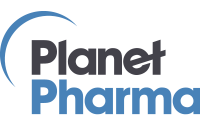A lot has been written about preparing for job interviews and usually the tips are the same. For example, doing research into the company. When it comes to a life sciences interview, though, should you prepare in a different way? Yes and no. In our experience coaching candidates applying for positions in life sciences, there are some important distinctions. Here are some tips to help you be more successful in your life sciences job search.
Start at the beginning with your resume
Before you can even consider applying for a life sciences job or interviewing for a new role, you need to get your resume in top shape. Many resume experts recommend sticking to a one- or two-page document. But in life sciences, it’s the details that make the difference so don’t hold back.
For example, you could create a section on your resume that describes your laboratory experience, knowledge of techniques and specific equipment that you’ve worked on. This is an especially good strategy if you have shifted fields. Maybe you were going for oncology early in your career and now you’ve transitioned into hematology. Focusing on your specific, transferable skills can strengthen your whole story.
For higher level positions and second-level interviews, it’s also valuable to describe the “why.” If you worked on a particular machine, explain the reason behind it. “This is what I was trying to figure out. Here’s the site, the acid that I built out to test the theory, and where I proved it worked. Here’s where it didn’t work and that’s where we ended up.” Interviewers and hiring managers appreciate that level of detail. It will also make for a more interesting discussion.
It’s true that recruiters use search tools to identify good candidates but that doesn’t mean you should pack your resume with key words. Focus instead on describing what you did and where you did it. The key words that are most important to your job search should appear organically.
Identifying the right career move
Let’s say you’re looking to increase your responsibilities or move into a new area. The first step in evaluating a potential new role is to scrutinize the job description to see if it’s potentially a good fit. We know this can be intimidating. If you don’t have all the skills or experience listed in the job description, should you give up and move on to the next job? Not necessarily. Try this.
Print out the listing and read through it, putting a check mark next to the skills or experience you have, and a cross mark on the ones you don’t. Go through your resume or CV and draw “lines” between the experience you have and what the company wants. Then step back and assess. Do you have enough of what they want? If you see more “do’s” then “don’ts,” you should consider applying.
Perhaps the organization wants specific job experience that doesn’t show up on your resume. Again, step back a moment. Are there skills or experiences that are transferable? For example, let’s say you have experience in quality control. Whether you’re applying to a large pharmaceutical company or a biotech startup, knowing the ins and outs of quality control processes and manufacturing will really help. When you can present your industry experience blended with, let’s say, an undergraduate internship, you can really utilize everything in your background.
How to prepare for a life sciences interview
Your resume is done, you’ve found new roles that seem interesting, you’ve applied and secured an interview. What you do next makes all the difference in going from applicant to new employee.
Find out all you can. As with any interview, research the company, the industry, competitors, etc. before any interaction. But in life sciences, it pays to go a bit further in your exploration. It’s something that will make you stand out. In our experience, candidates who know a lot about the company do better in a life sciences interview. Find out, for instance, what’s in the company’s pipeline and at which stage? How are they positioned in the marketplace? Have they recently gotten significant funding? Are there other companies with whom they are collaborating, or have acquired?
Maybe you’ve worked at one of those companies. Yes, it’s been five years, but they may still be using some of that base technology. Connect what’s in your resume to what the organization is looking for. These are higher level discussions that can move an introductory phone screen to a face-to-face interview more quickly.
Have examples ready. The job description should spell out the most important skills for the job. Before – not during – the interview is the time to dive into your experiences and come up with examples and stories that demonstrate you have those skills. Also, be prepared to speak to your weaknesses. The interviewer may want to delve into your weaker areas so it’s important to have your answers ready.
Prepare your own questions. There’s usually a point in every interview when the interviewer turns to the candidate and asks, “Do you have any questions for us?” For this moment have at least two prepared questions. You want to show the employer that you have really given thought to the role and how you would fit into it. Be sure to ask about the timeline for the hiring process. Also, consider asking other questions that dig a little deeper. For example, “What was something the previous position-holder had that might not be listed on the job description and that you found helpful or useful?” It’s one more opportunity to link your experiences to what the employer wants.
During the interview
Take notes. Whether it is a phone, video or in-person interview, jot down any questions or thoughts that come up in the discussion. Some candidates feel awkward doing this, but it shows that you’re really paying attention. As questions pop up in your head, rather than interrupt a speaker, write them down so that when the appropriate moment comes, you have the questions ready. These notes also help when you follow-up with the interviewers. For instance, you might say, “You mentioned X, Y, and Z. And I don’t think I had a chance to tell you about my experience doing such and such.”
Keep your resume and the job description front and center. During the life sciences interview, have your resume close at hand, either on paper or on your computer. Use it as a visual aid to remind you of all the experience you want to share with the interviewer. If it’s a video interview, you could even do a screen share so that you can walk them through your resume as you answer questions.
Likewise, have the job description in front of you, too. Have at least one example for each of the basic qualifications. For preferred skills or anything that may not be specifically listed, be ready to show examples from your background that speak to them.
Ask about the timeline. It’s perfectly acceptable to ask the interviewer for the timeline of the hiring process. And if you are interviewing with other companies – especially if you are deeper into the process – it’s okay to share that in a respectful way.
For instance, you could say, “I’ve had interviews at X and Y companies but right now, this is definitely my number one choice. I want to continue moving forward but I also want to be respectful of everybody’s time.” This sometimes perks up the ears of managers, especially if you are interviewing with a competitor. It almost creates an affirmation bias. “If that company thinks that they’re good enough for the role, we should at least bring them in for the second round.” It can get the ball rolling a little quicker.
Even with the pandemic, today’s life sciences job market is very competitive. There are more job openings than qualified candidates. That doesn’t mean you can slack off, though. The end goal of a successful life sciences job search is finding a position that fits you and your needs. For that, preparation is essential.
Photo credit: Canva
by Eric Davis, National Recruiter, Planet Pharma
How to Create an Effective Pharmaceutical Resume
Your resume is often the first impression you make on a prospective employer in the pharmaceutical industry, so it’s essential to ensure it effectively showcases your skills, experience, and qualifications. Here are some tips for creating an effective pharmaceutical resume that stands out from the competition: Tailor Your Resume to the Job: Customize your resume…
Planet Pharma EU’s October MVP: Mona Azhari
We’re highlighting some of the amazing people who make up our Planet Pharma. Today, let’s get to know Mona Azhari with our Planet Pharma EU team. Name: Mona Azhari Job Title: Recruitment Team Lead How does it feel to be recognised by your colleagues and what was your secret to success this month?…
Planet Pharma EU’s September MVP: Alastair Aitken
We’re highlighting some of the amazing people who make up our Planet Pharma. Today, let’s get to know Alastair Aitken with our Planet Pharma EU team. Name: Alastair Aitken Job Title: Principal Recruiter How does it feel to be recognised by your colleagues and what was your secret to success this month? Feels…



